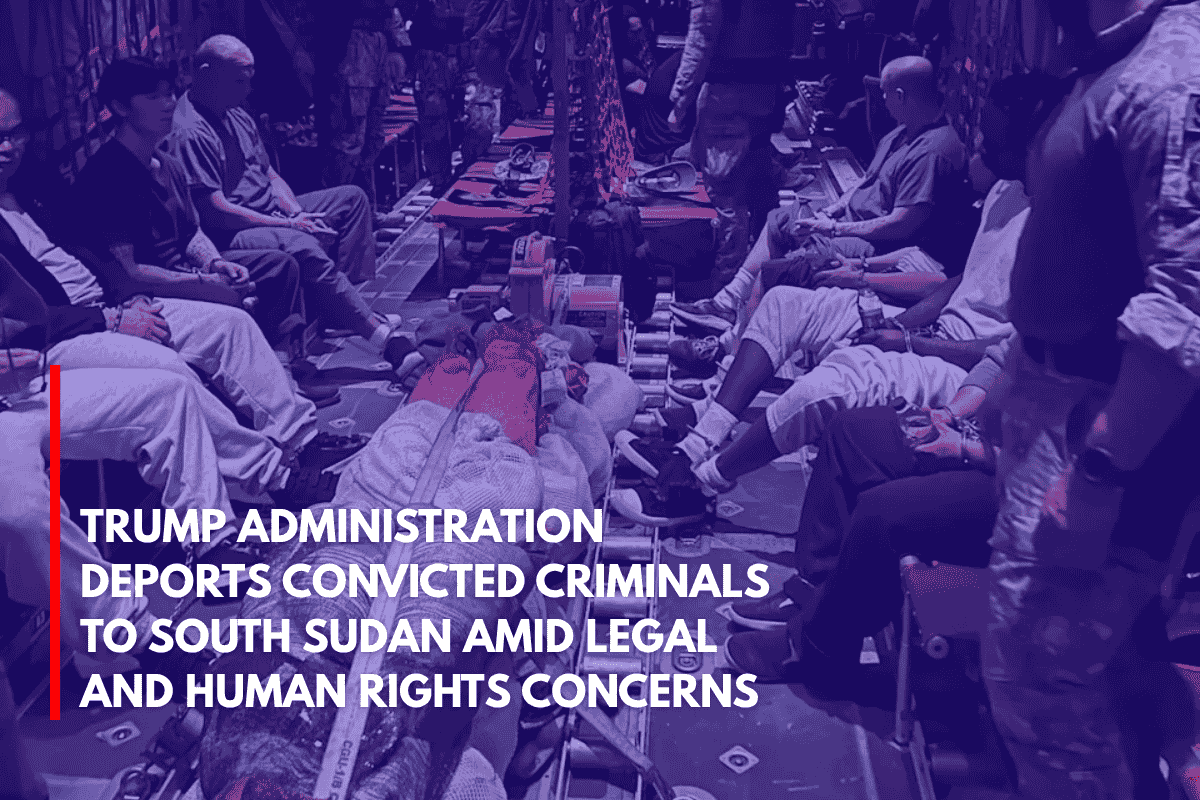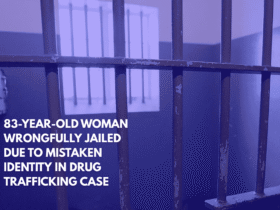The Trump administration has completed the controversial deportation of eight men convicted of serious crimes in the U.S., sending them to South Sudan, a country deeply affected by armed conflict and political instability.
The deportations come after weeks of legal battles, culminating in a Supreme Court decision that cleared the way for the deportees to be sent to a nation where the U.S. government advises against travel due to safety risks.
Deportation Details
Assistant Secretary of the Department of Homeland Security, Tricia McLaughlin, confirmed on Friday that the deportees were flown from Djibouti, where they had been held in a military base for weeks, to South Sudan.
The flight landed just before midnight EST on Friday, marking the conclusion of a legal saga that had kept the men in limbo.
A photo provided by the Department of Homeland Security (DHS) showed the deportees shackled at their hands and feet, seated inside an aircraft with U.S. service members standing guard.
McLaughlin called the deportation a “victory for the safety and security of the American people,” highlighting the Trump administration’s focus on a crackdown on illegal immigration.
The Legal Battle and Deportation Process
The eight men were convicted of serious crimes in the U.S., including murder, sexual assault, and robbery. Despite their convictions, none of the deportees were originally from South Sudan.
They came from countries such as Cuba, Mexico, Laos, Myanmar, Sudan, and Vietnam. They were ordered to be deported after completing their criminal sentences in the U.S.
The legal struggle over their deportation was intense. Immigration rights advocates fought to stop the deportations, arguing that sending the men to South Sudan without proper due process violated their constitutional rights.
The Supreme Court played a critical role, allowing the deportations to proceed after a lower court ruling had temporarily blocked them.
Human Rights Concerns
While the U.S. government asserts that South Sudan will offer the deportees temporary immigration status, human rights advocates remain deeply concerned about the potential risks the men face in the country.
Trina Realmuto, an attorney for the National Immigration Litigation Alliance, expressed outrage, stating, “Make no mistake about it, these deportations were punitive and unconstitutional.” There are fears the men could face torture, jail time, or other severe treatment in South Sudan, which remains a conflict-ridden country.
Political and Legal Implications
This deportation signals a new frontier in the Trump administration’s policies aimed at reducing illegal immigration, as well as its willingness to challenge international norms and agreements regarding the treatment of deportees.
McLaughlin stated, “A district judge cannot dictate the national security and foreign policy of the United States of America,” further emphasizing the administration’s desire to make strong, unilateral decisions regarding immigration policy.
For Trump, the deportations represent a political win in his broader efforts to convince other nations to accept deportees, even those who are not their citizens. The decision also aligns with his stance on the need for tough immigration policies.
The Supreme Court’s Role
The Supreme Court’s intervention was critical in allowing the deportations to proceed. Earlier in the year, a U.S. District Judge, Brian Murphy, had blocked the deportations, mandating that detainees be allowed to contest their removal from the U.S.
However, the Supreme Court suspended Murphy’s decision, giving the administration the green light to proceed. This paved the way for the men’s deportation despite ongoing objections from immigrant rights groups.
Judge Randolph Moss, who was involved in a separate legal request to block the deportations, voiced concerns about the physical safety of the men but ultimately conceded, stating the Supreme Court’s orders were binding.
Concerns Over Due Process
The deportations have sparked significant debate over due process for immigrants in the U.S. While some argue the men deserve to face consequences for their crimes, others contend they have already served their sentences and should not be subjected to additional punishment in a country with a poor human rights record.
Murphy’s initial ruling had emphasized that deportations should not be conducted to countries without sufficient safeguards or processes in place to protect individuals’ rights.











Leave a Reply